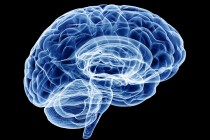 More and more children are being diagnosed with ADHD. A study found a 24% increase in new diagnoses between 2001 and 2010 (www.addrc.org – ADD Resource Center). What’s happening? While there are different theories about the cause of ADHD, there is a definite connection between stress and ADHD. We don’t know for sure whether stress is a cause or just a trigger, however kids and adults with ADHD cope much better by learning stress management skills.
More and more children are being diagnosed with ADHD. A study found a 24% increase in new diagnoses between 2001 and 2010 (www.addrc.org – ADD Resource Center). What’s happening? While there are different theories about the cause of ADHD, there is a definite connection between stress and ADHD. We don’t know for sure whether stress is a cause or just a trigger, however kids and adults with ADHD cope much better by learning stress management skills.
Kids and families are definitely under more and more stress these days. Life just seems to be on fast forward. Many families rarely have time to sit down for a relaxing meal. From a young age, children are bombarded by electronic media and distractions. At the same time, kids are spending less time outside getting exercise and having a safe place to use their abundant energies.
Until quite recently, Attention Deficit and Hyperactivity Disorder (ADHD), and Attention Deficit Disorder without Hyperactivity (ADD), have been diagnosed based solely on behavior. Typically a child is acting out at home or school, having difficulty following directions and often literally “bouncing off the walls.” Or, in the case of ADD, “spacing out” and seemingly living in another world. These kids (and adults) have a hard time simply staying on-track long enough to remember and complete tasks. There are many theories about what causes ADHD. Some research suggests brain chemistry and brain electrical connectivity issues. But research also shows a strong connection between stress and ADHD.
ADHD definitely causes stress for the child, but also for parents and other family members. These kids have such difficulty managing themselves that the parents have to continually step in for anything to get done. This often leads to a cycle of stress, low self-esteem, frustration, anger, and further behavioral problems. Children diagnosed with ADHD often struggle, and sometimes for their whole life.
 Computer based testing for ADHD is available and I do use it, but many times a clinical interview by a skilled practitioner is just as effective in coming to a diagnosis. This also helps the practitioner with insights into the specific issues and challenges of the client, and can be very helpful in planning treatment.
Computer based testing for ADHD is available and I do use it, but many times a clinical interview by a skilled practitioner is just as effective in coming to a diagnosis. This also helps the practitioner with insights into the specific issues and challenges of the client, and can be very helpful in planning treatment.
Medication has been shown to help manage these behaviors but there are concerns. A recent study showed no long term improvement in school performance (www.nber.org). More worrisome is that we really don’t know the long term effects of these drugs and there are some suggestions that they may have a long lasting negative effect on developing brains. What I have seen in my practice is that most of these children can significantly improve in function with therapy.
Treatment involves two main themes. The first is making improvements in stress management and emotional skills. This is often called neurocognitive training. It includes helping the child learn to manage strong emotions appropriately, and teaching skills for lowering internal tensions. This second is developing practical skills and habits to manage everyday life – thinking about effective time management, setting goals, and working to improve self esteem.
Besides being troublesome and stressful for all, ADHD can lead to serious life problems. Children who have been diagnosed with ADHD are at increased risk of cigarette and alcohol use. While it is well known that they can have difficulty at school, many have trouble later in life with work and social skills. The good news is that these kids can do much better learning self regulation and stress management skills early.
David Shanks, LCSW is a therapist in Carrboro/Chapel Hill


